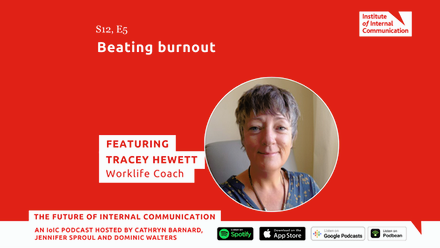Working from home can also reduce stress and put more of a focus on communicative employee culture.
But, there are some potential drawbacks.
A remote lifestyle does offer flexibility, which is crucial for mental health. But, in these uncertain times, a remote lifestyle can also lead to loneliness and isolation. Your team might feel "alone" or they might be struggling to find a healthy work-life balance. They actually might be feeling more pressure than ever to perform or always be "on."
So, what can you do to meet your remote team's mental health needs?
Make Meetings CountAs of March 2021, Zoom was logging 300 million daily meeting participants. It's no wonder a new phenomenon called "Zoom Fatigue" has started to creep up for employees across the country. Symptoms of the condition include:
- Feeling tired between calls
- Eyestrain
- Feeling stressed during calls
- Exhaustion at the end of a workday
The influx of virtual meetings has caused a variety of conditions to pop up. Another dangerous condition is Zoom dysmorphia. This is a condition that seems to impact women more than when, but everyone is susceptible to it.
When people spend hours each day on a video chat, they have plenty of time to nitpick at a pixelated version of themselves on screen. They might start to notice their flaws more – even ones that no one else would see. As a result, they can create a distorted vision of themselves in their minds. That can lead to low self-esteem, anxiety about how they look, and even depression.
You can fight back against the effects of Zoom fatigue and dysmorphia by limiting the number of virtual meetings you have. Choose alternative communication options whenever possible. When it's necessary to have a "face-to-face" meeting, make sure they are concise and serve a purpose. Get everyone involved as much as possible to keep things moving forward.
Encouraging a Work-Life BalanceWorking from home can make it easy for a workday to turn into a work night. Working from home, ironically, can cause an unhealthy shift in work-life balance.
If you're going to adopt a culture with a focus on mental health, encourage your employees to take care of themselves. Educate them on how to maintain their overall wellbeing and encourage them to:
- Develop a daily routine
- Set dedicated hours to work
- Spend time with family and friends
- Practice self-care each day
- Eat nutritiously
- Get enough physical activity
- Take breaks throughout the day
If your employees are really struggling, it's a good idea to have mental health resources available to them. It will let them know you're encouraging their wellbeing and want them to have a life outside of the "office".
Having a healthy work-life balance is crucial for mental health. But, it will also end up benefitting your business. Employees are less likely to feel burnt out when they know they don't have to be "on'' 24-hours a day. As a result, they'll be more productive, motivated, and more loyal.
Making Mental Health a PriorityMany times, simply checking in on your employees or team can go a long way. One of the problems with remote working is that it can be difficult for employees to feel "seen" or valued.
If you choose to develop an open culture about mental health and its importance in your business, live up to your own words. Lead by example. Communicating directly with your team is one of the best ways to do that. Thankfully, technology makes that very easy. You can put together weekly one-on-one chats with your employees to ask them how they're feeling, and make sure you're listening.
Additionally, it's important to create a workplace culture that will allow your team to reach out if they're burning out or going through other mental health struggles. Being open to emails, phone calls, or even text messages from your team will let them know you're making mental health a priority.
As an employer or manager, it's up to you to understand and respond to how working from home can lead to depression. Those feelings of depression can come with a variety of symptoms that will not only affect your business, but the overall well-being of your employees. Unfortunately, many of those symptoms, including fatigue, are cyclical. The more exhausted someone feels, the easier it is for depression to take hold.
Talk to your employees about their needs. Be flexible. Be adaptable. Create a culture they feel comfortable with. In doing so, you'll meet your remote team's mental health needs and enjoy a group that is happy to virtually show up each day.






